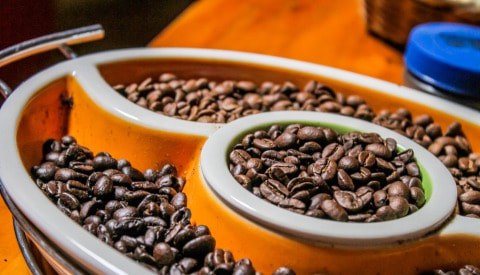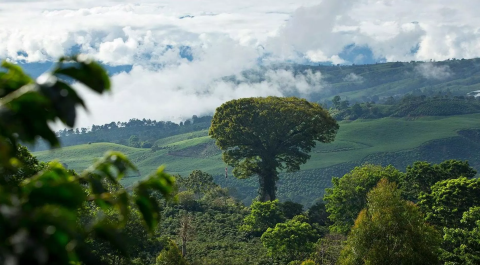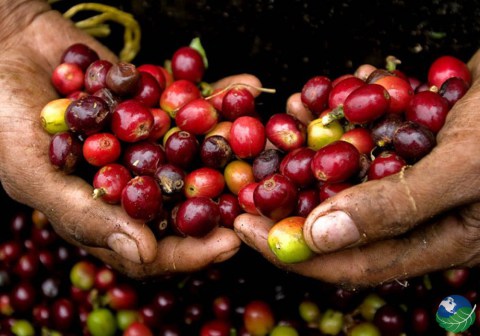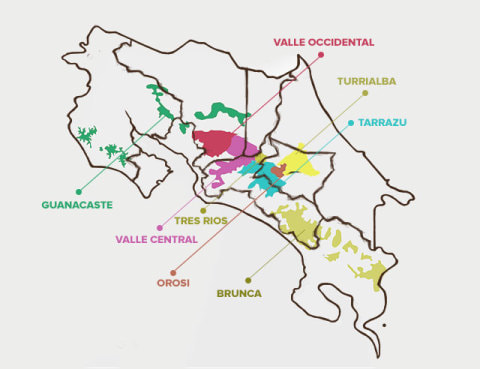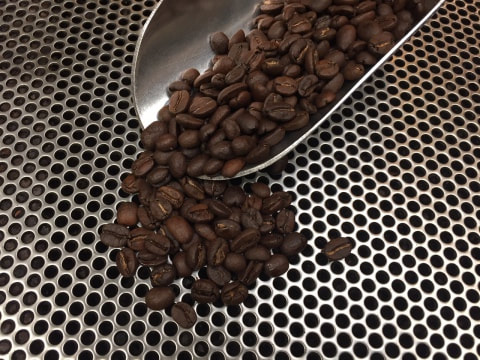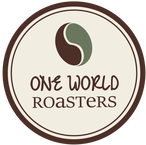5 Cool Facts About Costa Rican Coffees
The coffee world has buzzed about Costa Rica for many years now, but what’s so special about this little country and its coffee? Let’s dig into five tantalizing facts you probably didn't know about one of the finest coffee lands in the Americas!
100% Arabica - It’s the law!Costa Rica is a haven for quality coffee — in fact, growing anything less is actually illegal.
The first coffee that was grown in Costa Rica in the late 1700s was Arabica and, in light of its high quality and value, the government wanted to keep it that way. Accordingly, in 1989 a law was passed banning the growth of the more resilient, but less flavorful and profitable Robusta beans. |
When a country has soil as special as that of Costa Rica (more on this below) it’s important that its citizens protect it and this also factors into the decision to ban Robusta coffee. Robusta coffee is often grown in monocropping plots to economize space and get the maximum yield from the hearty plants.
The downside is by not rotating crops to restore minerals in the soil, these plots of farmland can be quickly depleted and rendered barren, and that would be a tragedy for a country with soil as ideal as Costa Rica’s (and a real problem for the farmers).
The downside is by not rotating crops to restore minerals in the soil, these plots of farmland can be quickly depleted and rendered barren, and that would be a tragedy for a country with soil as ideal as Costa Rica’s (and a real problem for the farmers).
The conditions are perfectAnd the Costa Rican government knows this better than anyone, which is why they offer many incentives to citizens to open coffee plantations such as supplying seeds and offering tax breaks.
This benefits their economy twofold — it expands the growth of a valuable export and helps farmers gain greater financial stability. |
The climate, the soil, the altitude — for coffee growing it doesn’t get much better than this. Both the cool, temperate climate and high altitudes of the region ensure a slow ripening process that allows the mineral-rich volcanic soil and strictly Arabica beans to work their magic at nature’s careful pace. The result is a perfect storm of outrageously flavorful and smooth coffee.
Even Costa Rica’s conditions on a societal level are primed to encourage the production of fabulous coffee. Icafe (Instituto del Cafe de Costa Rica), the national coffee association of Costa Rica, regulates the quality of coffee production and researches innovative farming techniques for the country’s prized export.
Even Costa Rica’s conditions on a societal level are primed to encourage the production of fabulous coffee. Icafe (Instituto del Cafe de Costa Rica), the national coffee association of Costa Rica, regulates the quality of coffee production and researches innovative farming techniques for the country’s prized export.
Costa Rica has 8 major Coffee growing regions, with Tarrazu being the most desirableThis is pretty remarkable for a country as small as this Central American coffee Mecca, but one region shines just a little brighter than the rest. The Tarrazu region is renowned for producing the most consistently high quality coffee beans thanks to its mountainous high altitude terrain, volcanic history, and cooler temperatures.
|
It's some of most valuable and sought-after coffee in the worldCosta Rica exports 90 percent of its coffee yield and, in spite of that, it serves less than 1% of the world’s coffee demand. Growers can barely keep up, and people are also willing to pay quite a premium for high quality Costa Rican single origins.
In 2012 Starbucks sold their most expensive coffee to date — a Costa Rican Tarrazu in $7 cups and $40 bags, and people paid up! |
Each region produces a characteristic flavor profile that connoisseurs can savor. The Tarrazu growing region, whose beans One World Roasters carries exclusively, features the area’s classic pairing of sweet dark chocolate and vibrant grapefruit with a lush, woody aroma.
Hard Bean (SHB) means easy to enjoy
So we know Tarruzu is the most prized coffee growing region in Costa Rica, but there’s another special distinction many Costa Rican beans carry — the Strictly Hard Bean or (SHB) designation. SHB coffee, means denser, more complex and flavorful coffee beans. It also means optimal consistency of flavor across beans. These are both important factors that make for ideal Costa Rican roasts.
Our Costa Rican Tarrazu is:
Pick it up in the shop today! |

